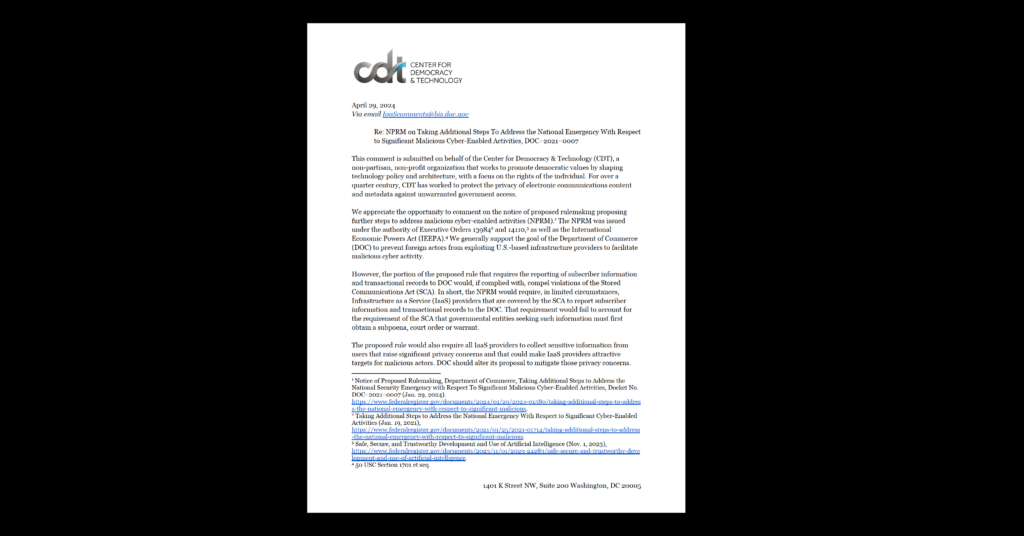Always On: Table for Tech
CDT recently hosted a discussion among a panel of experts on the role of data and technology in the modern food system. We were joined by an esteemed panel of 5, including Virginia Eubanks (author of Digital Dead End: Fighting for Social Justice in the Information Age), Laurent Crenshaw (Yelp), Pam Hess (Arcadia), Mojdeh Bahar (USDA), and Laura Chadwick (National Restaurant Association). The Restaurant Association generously hosted the event on Tuesday, September 29th.
The conversation focused on how technology has revolutionized the way we share recipes, purchase groceries, rate and review restaurants, and make reservations. For the food industry, streams of data about consumer consumption have created new opportunities for monitoring and anticipating food preferences, needs, and habits. Government agencies also recognize the value in applying new technology to food and the role of smart data in supplemental nutrition programs and product recalls. But are we trading privacy and autonomy in the process of incorporating big data and technology in food? How sensitive is information about what we eat, where we eat, and with whom we eat? How does food characterize or define us? How can we optimize the benefits of technology’s role in our diet?
Though calorie-tracking is perhaps the best known metric in food data, detailed information is collected about it from farm to table. Sophisticated sensors attached to farm implements track yield by square foot, drones flying overhead inform insurance adjusters’ evaluations, and highly technical software provides detailed weather predictions for farmers. Retailers track customer purchases through loyalty cards in addition to following in-store shopping habits. In addition, a burgeoning startup scene is popping up to track and solve all kinds of food-related challenges, from reducing waste to increasing access to healthy foods. Each of these endeavors uses data at varying degrees of personalization, and most of it has potential to be used for public good in the right hands.
The panelists raised interesting questions of how to draw the line between personal privacy and public good when deciding how to utilize data about food. For example, information about how folks use food assistance programs like the Supplemental Nutrition Assistance Program (SNAP) is mostly based on surveys rather than direct tracking. One reason for this is that EBT cards aren’t equipped with the right technology for that type of data collection. But another reason is because this data has political implications, and the USDA holding it increases its potential for use in political football by making it accessible under Freedom of Information Act requests. Efforts to shame individuals for utilizing public benefits are nothing new, but advances in technology could make this process faster and more accurate. Unlocking the trends and patterns within this data could bring positive changes for beneficiaries through personalized budgets or nutrition advice, as well as improved research and government administration of the program.
Laurent Crenshaw of Yelp described a different type of data partnership between private and government entities. Yelp worked with local health departments and Code for America to integrate restaurant inspection codes directly into the site’s pages for given restaurants. This work was inspired by the realization that mining the review site’s content for keywords like “vomit” and “food poisoning” could help identify restaurants with potential health code violations. This may seem like the perfect use of a publicly available data set, but as Laura Chadwick from the National Restaurant Association pointed out, it also leaves restaurants (often small businesses) vulnerable to attempts to game the system. This tension raises interesting questions about how to balance public data and private interests from a business perspective.
The spirited and passionate dialogue among our panelists showcases the range of important questions that remain to be answered about food and data. CDT wants to contribute to a process of establishing rules that promote the public good while preserving self-determination about what, where, and with whom individuals eat. We are excited to dig in.


